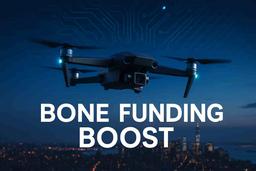Rental car platform Zoomcar, listed on Nasdaq, has reduced its net loss by 76% to $794K for the September 2025 quarter, compared to $3.35 million a year ago. Revenue saw a marginal 2% increase. This improvement was largely due to a one-time $1.7 million gain from derecognizing subsidiaries in Vietnam and Egypt. However, the company stated it lacks sufficient funds for the next year and is actively seeking $25 million in new financing, raising concerns about its long-term sustainability.
Nasdaq-listed Zoomcar has reported a substantial improvement in its financial performance for the three months ending September 2025, with its net loss shrinking by 76% year-over-year to $794,000, down from $3.35 million in the same period last year. Sequentially, the net loss declined by 81% from $4.2 million.
Revenue from services for the quarter stood at $2.28 million, a modest 2% increase from $2.23 million in the prior-year period. Total revenue, including other income, reached $2.29 million. However, total costs and expenses saw a significant 12% year-over-year rise to $4.27 million.
The primary driver behind the reduced net loss was a one-time gain of $1.7 million resulting from the derecognition of two subsidiaries: Zoomcar Vietnam Mobility LLC and Zoomcar Egypt Car Rental LLC. The Vietnamese entity's bankruptcy proceedings and the Egyptian entity's liquidation process led to gains of $401,000 and $1.5 million, respectively.
Impact
Despite cutting its losses, Zoomcar's ability to continue operations remains a significant concern. In a filing with the U.S. Securities and Exchange Commission (SEC), the company disclosed that it may not have enough funds to meet its obligations within the next year. To address this, Zoomcar's management is pursuing various funding avenues, including additional debt or equity financing, aiming to raise $5 million through bridge financing and another $20 million via an "uplist raise" before the end of fiscal year 2026. This comes after a previous attempt to raise $15 million earlier this year failed.
Zoomcar maintains that the September quarter marked its "eighth consecutive quarter of positive contribution profit and sustained progress toward full profitability." The company reported a 14% year-over-year improvement in adjusted EBITDA, attributing it to cost control and operating leverage. It also highlighted the growth in India's self-drive car-sharing market and its own expansion within the Indian market following its transition to a peer-to-peer model.
Rating: 6/10
Difficult Terms Explained:
Net Loss: The amount by which a company's expenses exceed its revenue over a specific period.
Revenue from services: Income generated by the company from its core service offerings.
Sequential basis: Comparing a period (like a quarter) to the immediately preceding period (the previous quarter).
Year-over-year (YoY): Comparing a period to the same period in the previous year (e.g., Q3 2025 vs. Q3 2024).
Total costs and expenses: All expenditures incurred by the company in its operations.
One-time gain: A profit from an event or transaction that is not expected to recur regularly.
Derecognition: The accounting process of removing an asset or liability from a company's balance sheet.
Subsidiaries: Companies controlled by a parent company.
Bankruptcy proceedings: The legal process initiated when a company cannot repay its debts.
Liquidation process: The process of winding up a company's affairs, selling its assets, and distributing the proceeds to creditors and shareholders.
Variable Interest Entity (VIE): A legal entity structure often used to bypass foreign ownership restrictions, where one party controls the VIE's operations and residual claims without direct equity ownership.
SEC disclosure: Information filed by publicly traded companies with the U.S. Securities and Exchange Commission.
Obligations: Financial commitments or debts that a company is legally bound to fulfill.
Bridge financing: Short-term financing used to cover a company's immediate financial needs until longer-term financing can be secured.
Equity financing: Raising capital by selling shares of ownership in the company.
Uplist raise: A fundraising event typically associated with a company preparing to list on a higher-tier stock exchange or seeking significant capital injection.
Registration statement: A filing with the SEC that provides detailed financial and business information about a company planning to issue securities.
Adjusted EBITDA: Earnings Before Interest, Taxes, Depreciation, and Amortization, adjusted for certain non-recurring items to better reflect operational performance.
Operating leverage: The degree to which a company uses fixed costs in its operations; higher operating leverage means a small change in revenue can lead to a larger change in operating income.
Asset-light marketplace: A business model that does not require significant ownership of physical assets, often relying on technology platforms and user-generated content or services.
Peer-to-peer (P2P) model: A system where individuals interact directly with each other, often facilitated by a platform, rather than through intermediaries.

